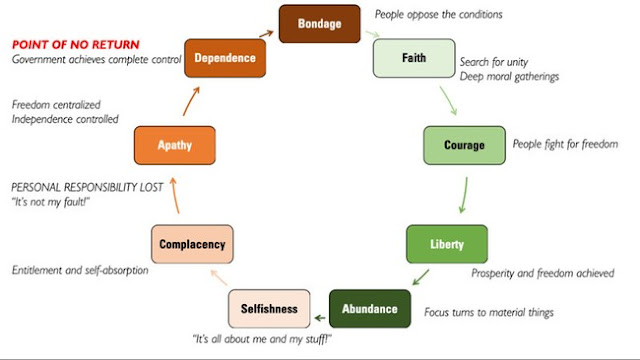Gretchen Whitmer's Experiment Threatens the Right to Drive (msn.com)
The lyrics of the 1981 song “Red Barchetta” by the Canadian rock band Rush describe the thrill of racing a vintage roadster in a future when driving is illegal. “I commit my weekly crime,” sings vocalist Geddy Lee, in an era governed by “the motor law” and policed by “a gleaming alloy air car.” That dystopian vision seems a faraway fantasy, but motorists in Michigan may think of it when they learn about a state plan to use Global Positioning System devices to track mileage and tax drivers based on road usage.
Michigan’s new state budget, which Democratic Gov. Gretchen Whitmer signed on July 31, authorizes spending $5 million on a survey to gauge consumer attitudes about the concept. The answer officials receive probably will depend on the wording of the question. If they want to avoid a libertarian freak-out, they should try something other than “Do you want Big Brother in your passenger seat?” Debate over the proposal will test the public’s tolerance of surveillance technology—and foreshadow an even more contentious dispute over the freedom to drive.
Budget officials around the country have worried for years that the rise of electric vehicles will lead to fewer drivers paying traditional gasoline taxes, which are often devoted to road construction and repair. In Michigan, a report sponsored by county governments found that the state already has lost $50 million in taxes that electric-car owners didn’t pay at the pump between 2019 and 2021. That’s only a fraction of the roughly $1.5 billion that Michigan collects annually from fuel taxes, but the losses could climb to $470 million by 2030, when perhaps a quarter of all vehicles plug in for their power.
If electric vehicles render gasoline taxes obsolete, states will have to figure out new ways to fill potholes and resurface roads. Funds could come from general revenue, though people with short commutes will end up subsidizing the travel of those who spend long hours behind the wheel.
One solution is to create more toll roads, which many states already have done but Michigan has avoided. These can work well on highways and bridges, less so on city streets, though some governments use transponders and license-plate cameras to enforce congestion pricing. Another idea is to tax the purchase of electric cars, which Michigan does by charging a registration fee of $140—a one-size-fits-all approach that doesn’t even try to account for driving patterns. Old-fashioned fuel taxes suffer from their own inefficiencies, such as failing to distinguish between vehicle types. Drivers of gas guzzlers pay more taxes than drivers of fuel-efficient cars, even though some of them make less use of the roads.
To solve this problem, more than a dozen states are experimenting with how to introduce taxes based on VMTs, or vehicle-miles traveled. By harnessing GPS data, officials can count miles with the accuracy of odometers, and they can distinguish between travel on interstate highways, county roads, private land and across state lines. A tax on VMTs might feel a lot like a user fee.
The Mackinac Center for Public Policy, Michigan’s free-market think tank, set aside its reservations about government surveillance and last year endorsed the concept of VMT trackers as a fairer and more efficient way to pay for the roads. States could allay privacy concerns by mandating erasure of driving records after a period of time or demanding warrants for law-enforcement access.
Yet calls to exploit driver data will be hard to resist. Police will say they need the data to catch criminals. Insurance companies will seek the data to help set rates. Public-health officials will insist on access to enforce future lockdown orders. Ideologues will want to know who parked near the wrong political rallies. Each concession will deliver a ding to personal liberty.
Just as electric vehicles one day may replace gasoline-powered ones, autonomous vehicles may lead some to question the wisdom of letting free people operate their own cars. The technology is still young and controversial, but it will improve. Self-driving vehicles at some point will become safer than those driven by distracted, drowsy or drunk people. Can calls to outlaw human drivers entirely be far behind?
Freedom is always subject to wear and tear and sometimes liberty needs a tune-up. But driving the open road—with the windows down and your favorite song blaring from the radio—is almost an American birthright. Putting the pedal to the metal is not yet a crime, but the dystopia in your rear-view mirror may be closer than it appears.














